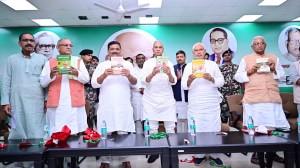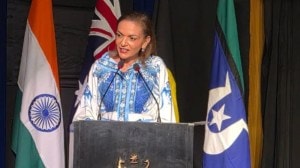Your Q His A
• I am a Hindu Brahmin girl and forced into a situation by my husband where I have to seek divorce from him. Please tell me about divor...

• I am a Hindu Brahmin girl and forced into a situation by my husband where I have to seek divorce from him. Please tell me about divorces. Which is faster, mutual or one sided. What are the requirements and process?
Anonymous
A marriage between Hindus solemnised by Hindu ceremonies is governed by the Hindu Marriage Act. Under the Act, a divorce petition can be filed by either the husband or the wife. The party seeking divorce will have to prove the existence of one of the grounds provided under the Hindu Marriage Act. These include voluntary sexual intercourse with a person other than the spouse, cruelty, desertion for a period of not less than two years before the filing of the petition, conversion to another religion and insanity. A wife can also file a petition for divorce on the ground that her husband has been guilty of rape, sodomy or bestiality after the solemnisation of the marriage.
Divorce by mutual consent is easier and can be obtained by filing a petition for dissolution of marriage in the district court. The parties have to establish that they have been living separately for a period of one year or more, that they have not been able to live together and that they have mutually agreed that the marriage should be dissolved. Further, a divorce petition cannot be presented within one year of marriage. There is a requirement that in the case of such a petition, the Court must pass a decree of divorce if the parties make a motion to that effect after six months and before eighteen months of having filed the petition.
• I have a hobby of collection of coins. Presently I possess the coins of India before partition, coins of India after partition (i.e present coins) as well as coins of foreign nations which includes countries from South and North America, Europe, Asia including Pakistan, Africa, Australia etc. Now please advice me whether I have to take any permission from any authority of government for my collection? Can I exhibit my collection in public? can I also collect foreign currency notes?
Suresh N. Khiani
The Foreign Exchange Management Act, 1999, prescribes the maximum amount of foreign exchange that a resident Indian can keep without permission from the Reserve Bank of India.
There is no restriction on possession of foreign coins by a person. A person is allowed to possess foreign coins without any limit. However, maximum amount of foreign currency notes that a person can possess is US $ 2000 or any other foreign currency notes of equivalent value. If the value of the foreign currency you hold is higher than US $ 2000, you would be required to take RBI approval in this regard.
There is no prohibition on exhibiting your collection in the public.
• I have a brother who is a schizophrenic patient for the last seven years. He has been under medication, which was proving to be quite useful. However, my father has experimented tona totka and other methods like black magic on my brother, which have only worsened his condition. Despite my persistent efforts to dissuade him, my father is still consulting tantriks in UP. Let me please know if I can legally stop my father from further trying out these ‘‘experiments’’ on my brother.
Anonymous
Under the Mental Health Act, 1987, you may report the ill treatment of your brother to the local Magistrate, upon which the Magistrate may direct your father to take proper care of your brother. If you make such a report before the Magistrate the Magistrate will cause your brother to be produced before him. He may also summon your father and hear him on the matter. Since your father is legally bound to maintain your brother, the Magistrate may, by order, require your father to take proper care of your brother. If your father willfully neglects to comply with such an order, he will be punishable with a fine, which may extend to Rs 2,000.



- 01
- 02
- 03
- 04
- 05




























